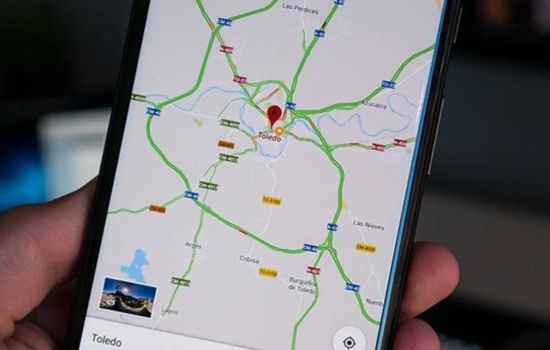In a hyperconnected world where we constantly rely on the internet, there's a scenario we've all experienced at least once: being lost in a dead zone, with your phone displaying those dreaded empty bars just when you need guidance the most.
This situation, which can turn an exciting adventure into a stressful experience, has an elegant and increasingly popular solution: offline GPS apps.
See also
- Free Platforms for Your Marathons
- Apps that reveal hidden treasures
- Which star are you like? Find out now!
- Free Westerns: The Best Apps to Watch
- Is It Real Gold? Apps to Verify Jewelry
What Are Offline GPS Devices Really?
Offline GPS navigation apps are those that work without an internet connection once the corresponding maps have been downloaded. Unlike traditional GPS devices, which depend on a constant connection to update traffic and route information, these apps store all the map data directly on your mobile device. It's like carrying a complete digital atlas in your pocket, but with the intelligence to calculate routes, display points of interest, and guide you step-by-step to your destination.
GPS (Global Positioning System) technology works using satellites orbiting the Earth, and your phone can receive these signals without an internet connection. What requires a connection is the download of updated maps and additional information such as real-time traffic conditions. Offline apps solve this problem by pre-storing all this mapping information.
The Protagonists of the Offline GPS World
Google Maps: The Adaptive Giant
Google Maps, undoubtedly the most widely used browser in the world, offers robust offline functionality that many users are unaware of. Although it primarily works online, it allows you to download specific areas for offline use, turning entire regions into maps accessible offline.
Its strength lies in the accuracy of its data, constantly updated by millions of users and Google technology. Google Maps' offline maps include detailed directions, street names, points of interest such as restaurants, gas stations, and hospitals, in addition to basic navigation functions. However, advanced features such as real-time traffic information, dynamic rerouting, and voice search are limited offline.
The main advantage of Google Maps offline is its ease of use and the familiarity most users already have with its interface. Plus, when you get back online, it automatically syncs with all online features.
Organic Maps: The Free and Ecological Alternative
Organic Maps represents a completely different philosophy in the world of navigation. This free and open-source application is based on data from OpenStreetMap, a collaborative platform where users from around the world contribute mapping information.
The most attractive aspect of Organic Maps is its commitment to privacy: it doesn't track your location, displays no ads, and requires no user registration. It's completely free, with no in-app purchases or premium subscriptions. The maps download quickly and take up less storage space compared to other alternatives.
This app is especially notable for outdoor activities such as hiking, biking, and rural tourism. Its community of contributors keeps up-to-date with trails, mountain routes, and remote locations that are often missing from commercial maps. For travelers conscious of the environment and digital privacy, Organic Maps offers a pure navigation experience without commercial compromises.
Sygic GPS Navigation & Maps: The Premium Professional
Sygic positions itself as the premium option in the offline GPS market, offering advanced features designed for both personal and professional use. With over 200 million users worldwide, this Slovak app has built a solid reputation for offline navigation.
Its premium features include voice navigation with extremely detailed instructions, 3D visualization of buildings and terrain, speed limit information, traffic camera alerts, and integration with in-car entertainment systems. Sygic also offers specialized maps for trucks, taking into account height, weight, and route restrictions appropriate for commercial vehicles.
The free version provides basic navigation, but advanced features require a subscription. For professional drivers, frequent travelers, or people who value premium navigation features, Sygic justifies its cost with sophisticated tools and constantly updated maps.
Why Do You Need an Offline GPS?
Total Connectivity Independence
The most obvious benefit is the freedom to browse without relying on a mobile signal. Rural areas, mountains, deserts, foreign countries with expensive data plans, or simply areas with poor coverage are no longer obstacles to your travels.
Significant Economic Savings
For international travelers, using mobile data while roaming can generate astronomical bills. An offline GPS completely eliminates these costs, allowing unlimited navigation without financial worries. It also reduces overall mobile data usage, which is especially valuable for limited plans.
Longer Battery Life
Offline GPS devices consume considerably less battery than apps that require a constant internet connection. Without the need to maintain an active data connection, your device can operate longer, a crucial factor on long trips or adventures where charging isn't easily accessible.
Superior Response Speed
With locally stored maps, searches and route calculations are instantaneous. There are no delays waiting for maps to load or information to update, providing a smoother and more efficient navigation experience.
Privacy and Data Security
Many offline GPS apps offer greater privacy by not constantly transmitting your location to external servers. For users concerned about digital tracking, this feature is a significant advantage.
Important Considerations
Although offline GPS offers many advantages, it also has limitations. Maps require periodic manual updates to maintain accuracy with new construction, traffic changes, or urban modifications. Storage space can become a limiting factor, especially for users with limited-capacity devices.
Real-time traffic information, dynamic rerouting based on current conditions, and searches for specific locations are restricted offline. For everyday urban navigation where traffic conditions are crucial, online GPS devices retain significant advantages.

Conclusion
Offline GPS apps have evolved to become essential tools for any modern traveler. Whether you choose the familiar robustness of Google Maps, the open-source philosophy of Organic Maps, or the premium features of Sygic, having an offline GPS installed and configured can make the difference between a successful trip and a problematic experience.
In 2025, when connectivity remains patchy in many regions of the world, these apps represent a form of technological insurance. It's not just about convenience, but also about security, independence, and peace of mind knowing you'll always have the ability to find your way, no matter where your adventures take you.
The recommendation is simple: download at least one of these apps, familiarize yourself with how they work, and keep the maps of your favorite destinations up to date. Your future self, lost somewhere without a signal, will thank you immensely.









